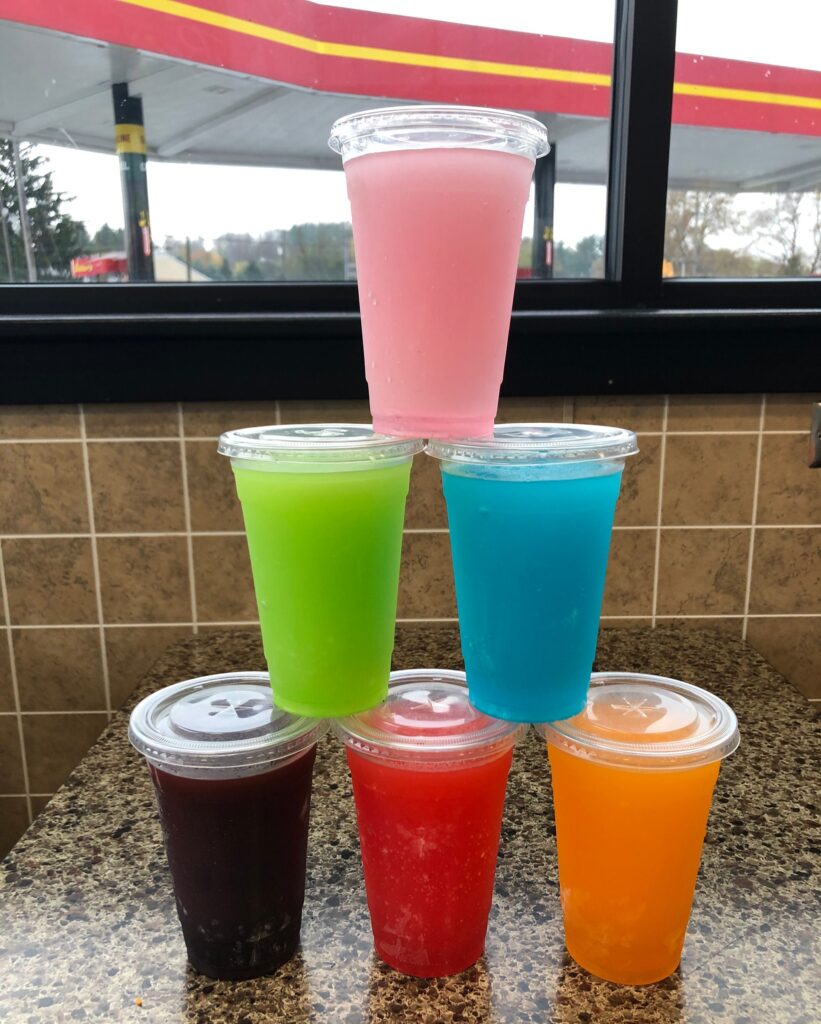I think everyone in Pennsylvania has probably seen the following situation unfold while in line at the six-pack shop or grocery store. Someone from out of state grabs a couple of twelve-packs (twenty-four beers times twelve ounces each equals 288 ounces), only to be told by the cashier that they have to put one back because Pennsylvania law says you are only allowed to buy 192 ounces of beer at a time, except at beer distributors.
The out-of-state person looks confused at first, but then remembers that they are in Pennsylvania. Then they proceed to buy one twelve-pack, take it to their car, and come back in to purchase the other. Very inconvenient (and silly, if you ask me). As someone who has been here a while, it is always a little amusing watching this go down, but I remember the frustration I had when I first moved to this state.
And that frustration went beyond the six-pack shop. From not being able to buy wine, beer, and liquor at the same location, to finding fewer deals because of the limits on where purchases can be made, to being unable to find certain wines from other states, Pennsylvania alcohol laws left me confused.
You see, ever since the end of Prohibition, alcohol sales in Pennsylvania have been a little inconvenient and confusing, especially for those coming from other states. The rules can be traced back to Governor Gifford Pinchot, who established the Pennsylvania Liquor Control Board in 1933 and kept the sale of liquor under government control.
Some folks say that Pinchot was looking to make alcohol more expensive and hard to acquire in order to keep people from drinking. It seems to be unclear if that was his intention, as others say he was just trying to follow regulations after the end of Prohibition.
Either way, things since have been a little different in this state compared to others (at least it’s not like Utah), but over the last twenty years, things have begun to change in ways that would have been unimaginable when I first set foot in this commonwealth.
I mean, just a few years back it would have been hard to imagine being able to walk into a gas station and come out with an alcoholic slushy to take back home to be enjoyed, much less a six-pack of beer. But now you can.
I am not saying that I walk out of a place like Rutter’s often with a Spiked Slushie in my hand, but I like the fact that I can if I want to. The lids are sealed, and the drinks are meant to be taken home before consumption, thus saving the consumer the trouble of having to blend their own ingredients at home.

For someone like me, who might enjoy such a treat every once in a while on a very hot day, it just makes sense. Rutter’s is a little far from my home, but they are not the only place that sells them. Other locations also offer these beverages (my go-to spot is the Port Matilda Hotel, nice and close to home, so my slushy stays cold).
Yes, over the years Pennsylvania has changed laws to allow the sale of beer and wine at grocery stores and gas stations, allow beer distributors to sell six-packs and twelve-packs (previously it was only cases and kegs), and allow for (some) wine to be shipped to consumers.
And most recently, in July, Pennsylvania passed a couple of new measures that will again change the way alcohol can be sold in the state. This should be a boon for consumers, adding both variety and more deals. The changes go into effect in September, sixty days after Governor Shapiro signed the legislation.
The first big change allows the sale of ready-to-drink, low-alcohol canned cocktails in more than 12,400 restaurants, bars, beer distributors, grocery stores, and convenience stores already licensed to sell alcohol, provided they obtain a special permit to sell the canned drinks.
The law limits the ready-made cocktail container size to sixteen ounces, and no more than 12.5 percent of the drink can be made up of alcohol. That alcohol content is similar to what is contained in malt-based canned cocktails that consumers can already access in grocery stores and the other retailers where beer and wine are sold, but now they can be made with other alcohol like rum, tequila, or vodka, instead of malt liquor only.
This should provide a much greater variety for consumers.
The other new legislation will expand happy hours in Pennsylvania. For many years, bars have only been allowed to offer combo deals on food and alcohol, known as happy hour deals, for fourteen hours a week. The new law will expand that time frame to twenty-four hours a week.
This means consumers might find better deals at restaurants and pubs, and restaurant and bar owners who are still struggling post pandemic can offer new ways to draw people in. Sounds like a win-win to me.
So, things are still a little confusing, with our beer distributors and state stores and six-pack shops, but progress is progress. I guess things can change. Cheers to that! T&G
Vincent Corso enjoys drinking local and meeting new people at central Pennsylvania’s many interesting establishments.




